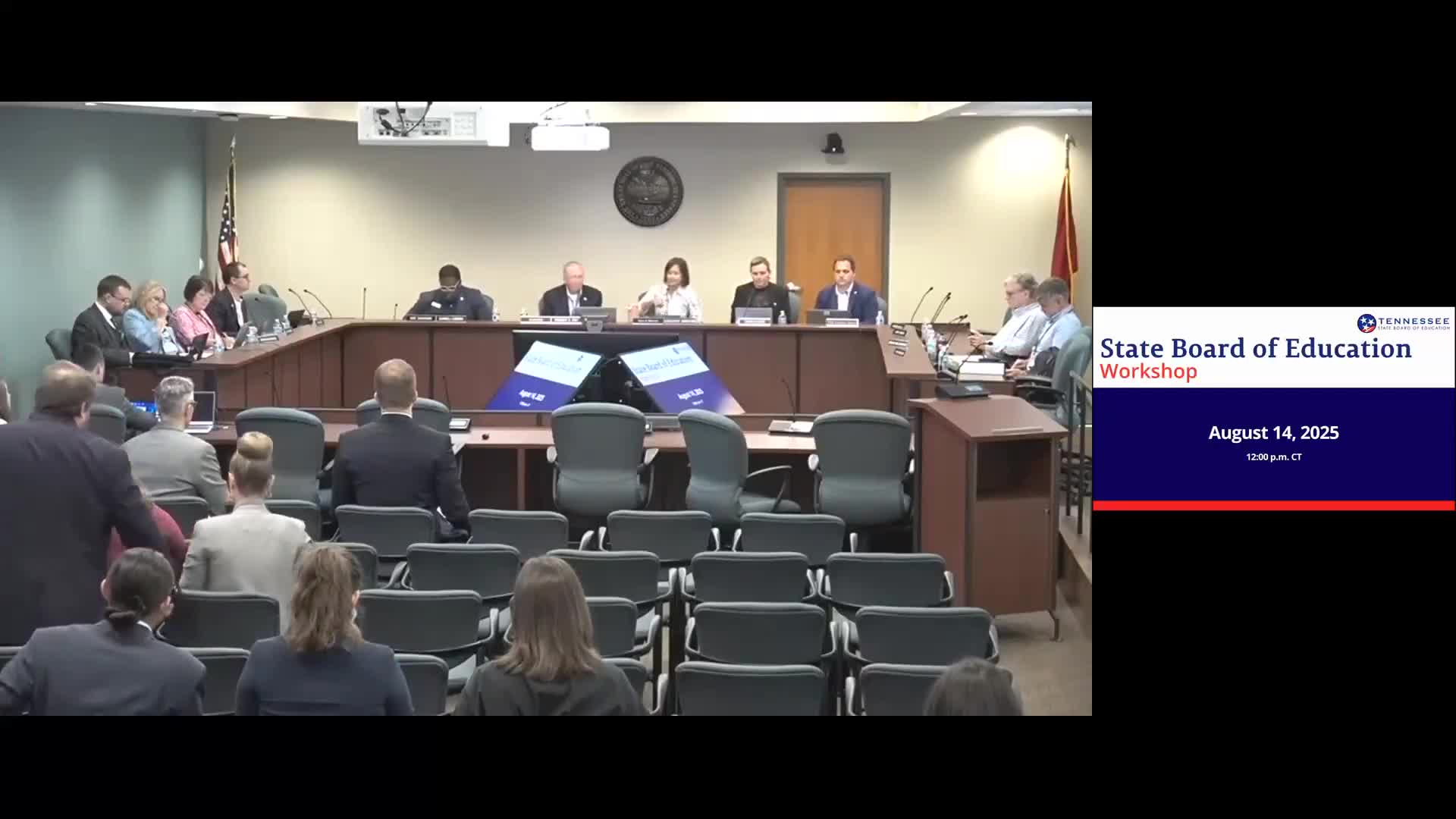Article not found
This article is no longer available. But don't worry—we've gathered other articles that discuss the same topic.
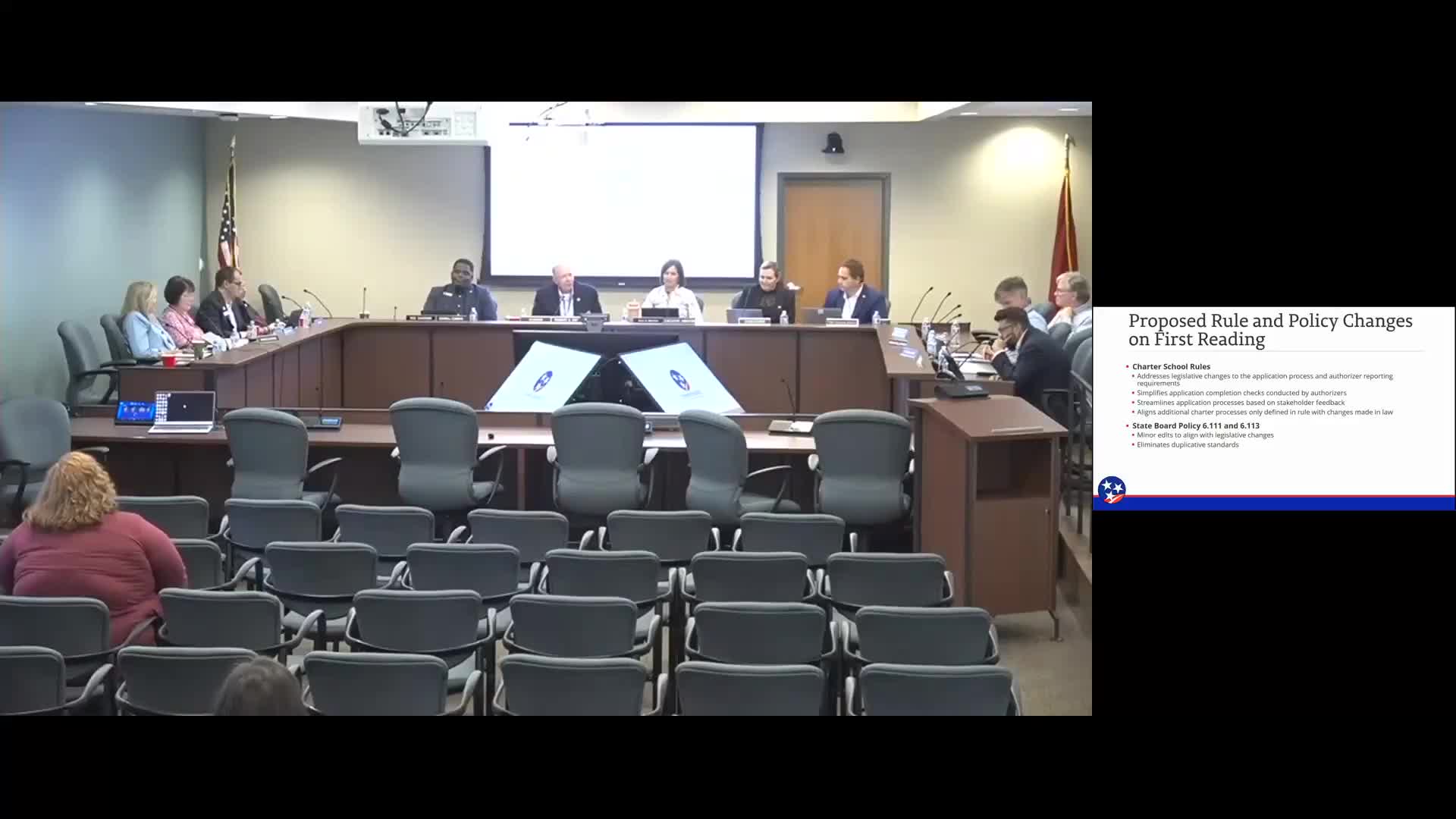
State Board debate opens on whether world language should remain a graduation requirement
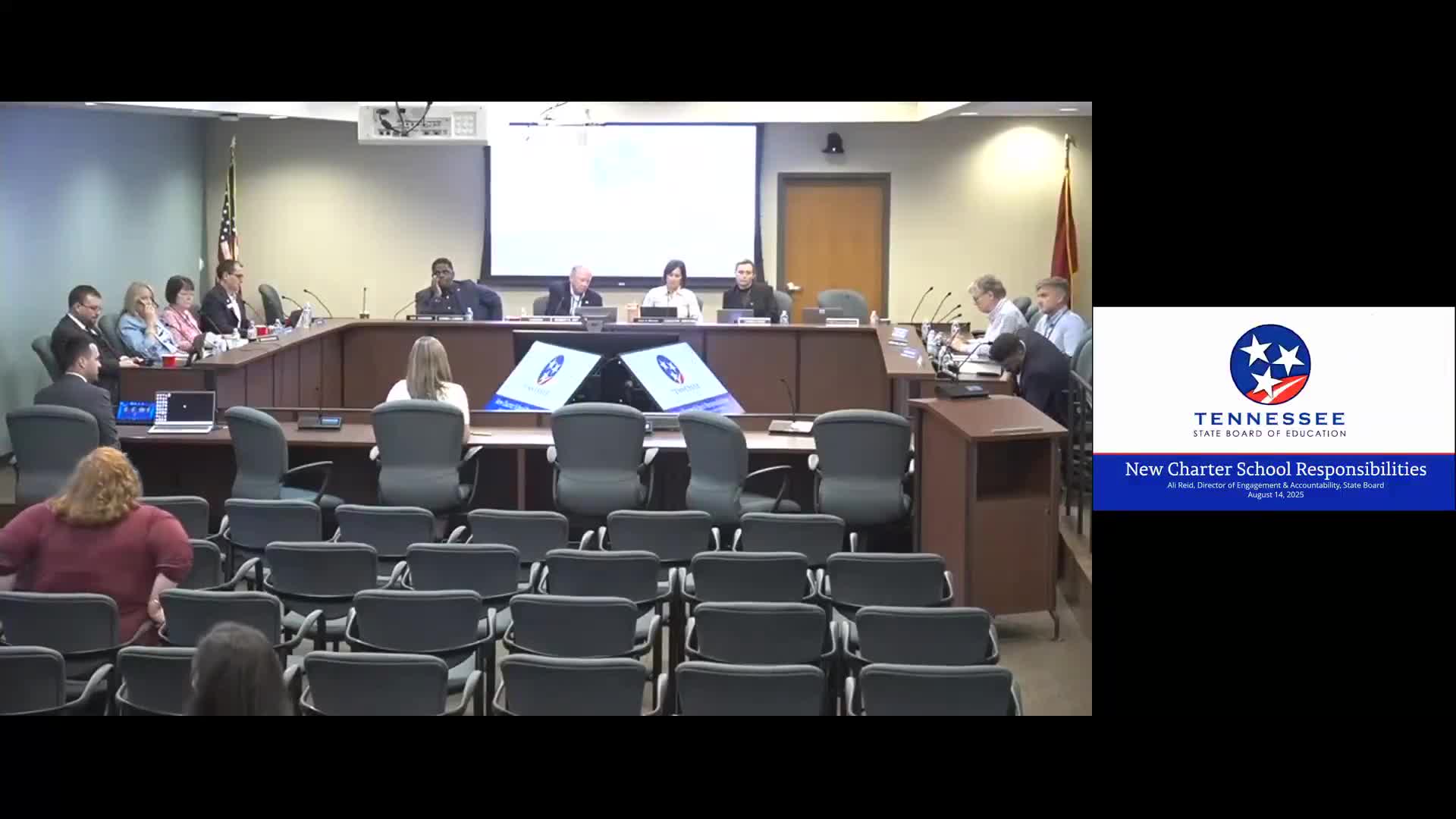
State Board takes on new charter school responsibilities after law change; staff to publish updated application and performance frameworks
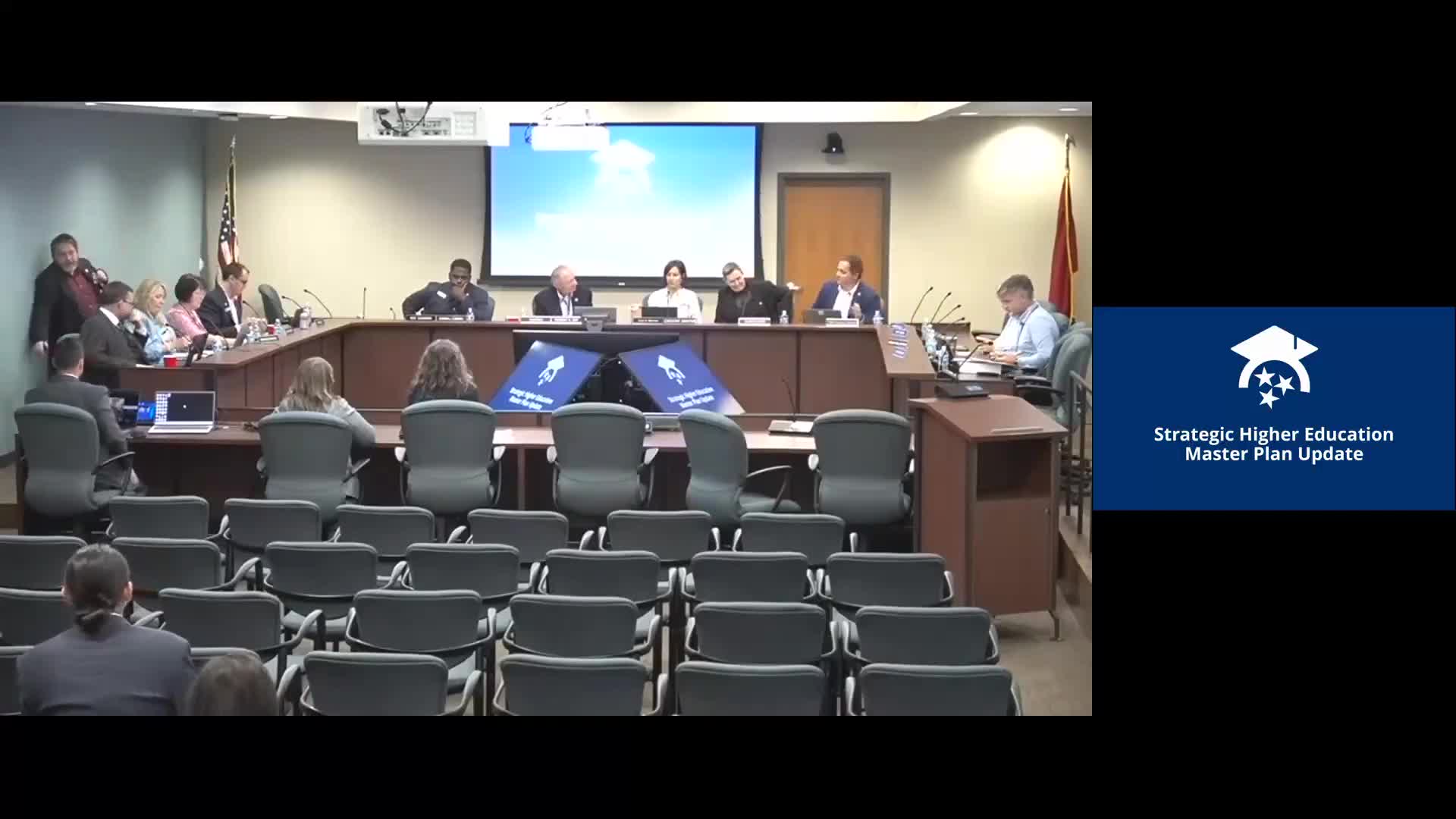
THEC outlines 10‑year master plan and publishes college‑going report showing 56% immediate postsecondary enrollment for 2024 class
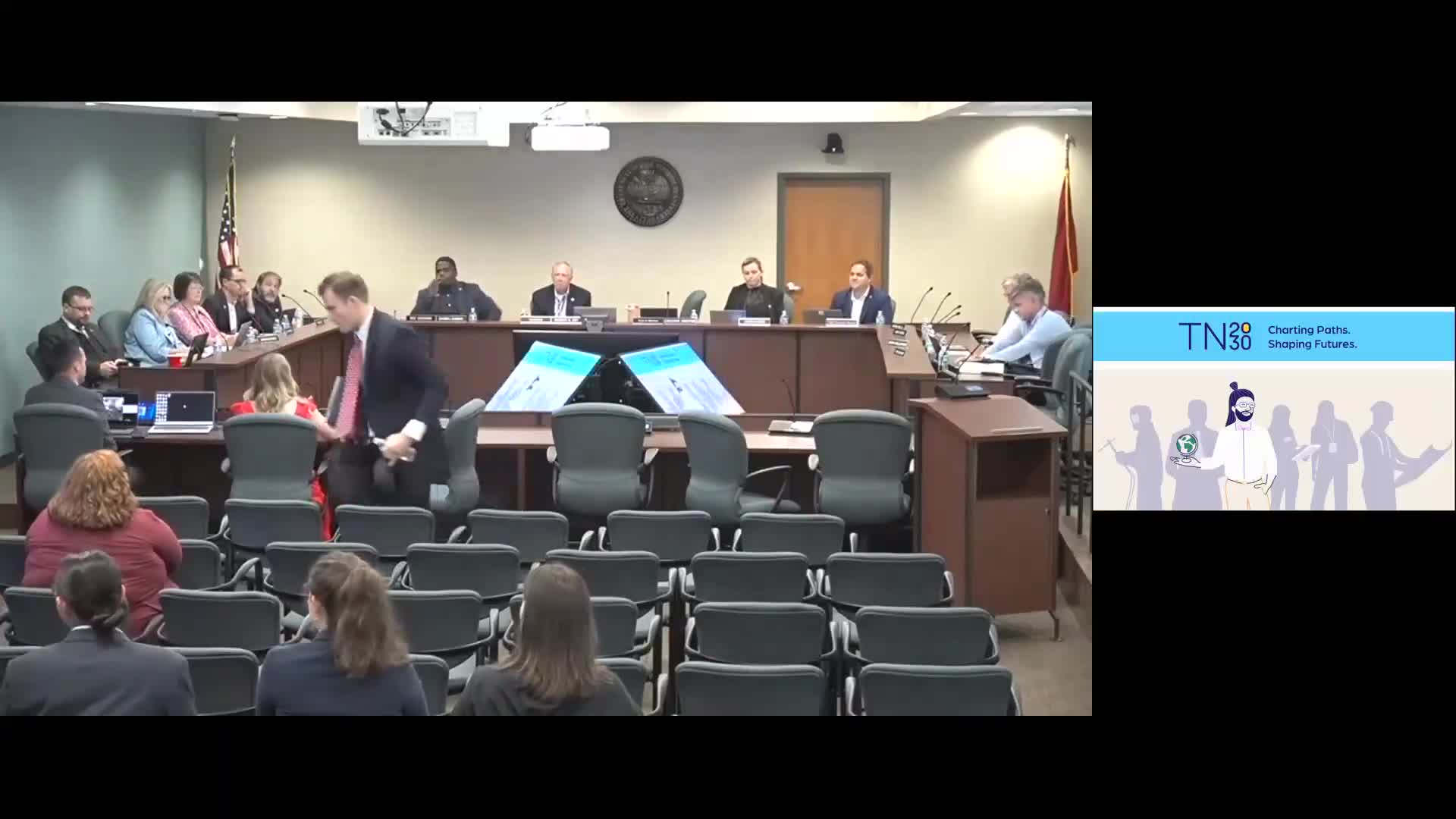
SCORE unveils Tennessee 2030 goals: measurable targets for reading, math and postsecondary pathways
